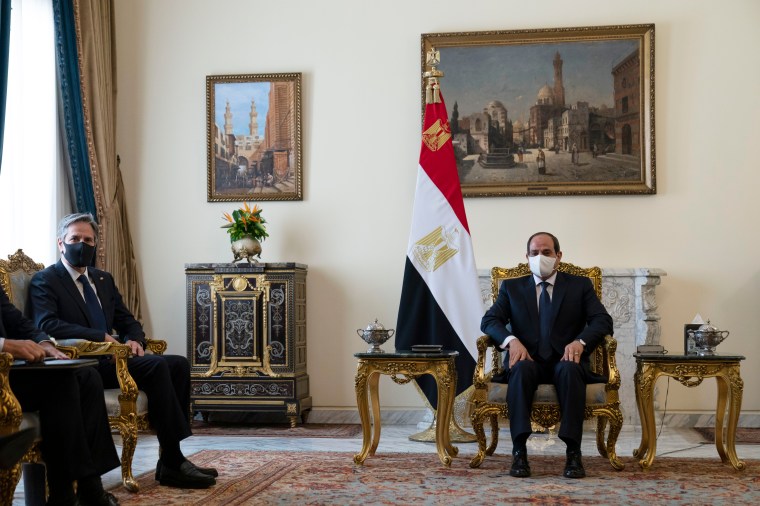The Torch is a weekly newsletter from the Committee to Protect Journalists that brings you the latest press freedom and journalist safety news from around the world. Subscribe here.
CPJ joined 18 other civil society groups this week in condemning the decision by U.S. President Joseph Biden’s administration to send $170 million in military aid to Egypt and bypass human rights conditions set by Congress. The joint statement notes that the move “sidesteps the intent of Congress,” which had passed legislation to withhold such funds unless the Egyptian government acted to improve the human rights situation in the country.
One of the many journalists at risk in Egypt is Hossam Bahgat, who is set to go on trial next month over a tweet criticizing the former president of the National Election Authority for alleged corruption.
“My only explanation for this is that authorities want to send me a certain message or punish me for my overall activities in journalism and human rights,” he told CPJ in a recent Q&A. If convicted, Bahgat could face up to two years in prison and a fine of 500,000 Egyptian pounds (US$32,000).
- An exiled Syrian journalist’s advice for fleeing Afghan reporters
- Afghan photographer Morteza Samadi detained by Taliban
- Iranian photojournalist Majid Saeedi arrested while covering Afghan refugee camps
- Belarus authorities continue to charge and detain journalists, raid homes
- Algerian journalist Mohamed Mouloudj detained on charges of terrorism and spreading false news
- BBC news crew threatened by COVID-19 protesters in UK
- Protesters against Slovenian COVID-19 response storm headquarters of RTVS broadcaster
- N1 TV crew attacked and harassed at Montenegro protest
- Tanzanian authorities suspend Raia Mwema newspaper for 1 month. Last month, authorities also suspended the ruling party-owned newspaper Uhuru for two weeks
- Indian finance authorities raid offices of Newslaundry and Newsclick websites
- Polish parliament to vote on media bill targeting broadcaster TVN24
- CPJ welcomes decision to drop criminal charges against Guatemalan journalist and 2021 IPFA winner Anastasia Mejía
Spotlight

This month marks 20 years since the Eritrean government shut down the country’s independent press. The country is one of the most censored in the world, and among the worst jailers of journalists in sub-Saharan Africa, most of whom have been behind bars since 2001.
The Eritrean government has failed to provide credible answers to questions about the jailed journalists, and has not allowed allow visits from their families or lawyers.
Join CPJ in calling for the immediate release of all jailed journalists in Eritrea.
On September 23, CPJ Middle East and North Africa Program Coordinator Sherif Mansour will join a panel conversation hosted by Skyline International for Human Rights on the global and regional impact of Pegasus spyware technology. Watch the event’s livestream at 11 a.m. EDT here.
- 30+ Years after Windhoek: Re-examining media freedom in a changing world — East Africa Journalism Review
- Azerbaijan: Pegasus Spyware Perfect Fit For Regime Intimidation — Arzu Geybulla, Eurasia Review
- The Silencing Of Fairy Creek Journalists: RCMP Threaten and Obstruct Free Press — Jasmyne Eastmond, The Maple
Do you have an Amazon Alexa-enabled device? Enable CPJ's flash briefing skill to stay up to date with the latest press freedom news from around the world.
